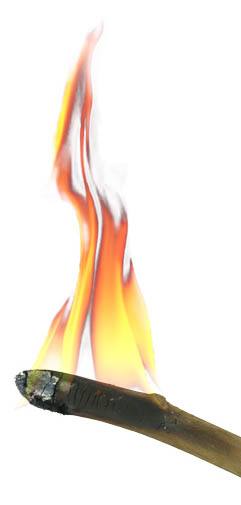recentactivity
- All
- Submitted
- Corrected
- Explanations
- Meanings
- More
Oct 29, 2015
Oct 29, 2015
"
- There is the devil's bride,
Rode on the goat astride
Rode on the goat astride
"The devil's bride" is referring to a witch, of which there were many in the dark era of medieval Sweden. "Rode on the goat astride" is making reference to the fact that the goat is the image of the devil. 
Witchery was a crime punishable by death in the Christian medieval Sweden, and many, many women were burned at the stake for it, even if they actually were not witches.

Witchery was a crime punishable by death in the Christian medieval Sweden, and many, many women were burned at the stake for it, even if they actually were not witches.
Oct 17, 2015
Viddernas Man: Man of the Expanses
Distant church sounds muffled
out over wide plains
where a lonesome wanderer walks.
Neither well-to-do nor farmhand.
Freedom is his brother.
The embrace of the forest is his safest bed.
Under heavy and grey-clouded sky
the beggar wanders forth restlessly.
Wander on, you man of the expanses
towards new adventures.
Weather forces, worn skin
shows the trial of life
and a heart of purest gold.
For his gifts, given by the forest,
he gets food and new pants,
before the road calls again.
Oct 17, 2015
Skula, Skorpa, Skalk: Waste-food, Rusk, Rind
A man has worked on lord Lager's farm
for summer and winter, year by year.
Tell me: who now provides for you?
For labour and hardship under grey sky
he merely receives his bread as payment.
Tell me: who now provides for you?
So the message swiftly comes:
"Our lord takes your daughter!"
Tell me: who now provides for you?
And the thrall through the doorway stepped,
he left the plough by the field.
Tell me: who now provides for you?
"Lord Lager, now hear my words,
you have made my daughter your whore,
Tell me: who now listens to you?"
And Lager said in anger:
"You are not careful with your thrall-blood.
Tell me: who now listens to you?"
Neither ale nor wine intended for you,
nor right to own, but waste-food, rusk, rind.
Neither ale nor wine intended for you,
nor right to own, but waste-food, rusk, rind.
The thrall did not react,
before his throat was cut.
Tell me: who would care for you?
"This is enough payment for today
and the daughter I take when I wish to.
Tell me: who would care for you?"
"Come let me show you my right
to comfort you in any way.
Tell me: who now provides for you?"
"Oh thanks!" he said, with tender voice
and thrust the knife in his chest.
"Tell me: who now mourns* for you?"
The Swedish word "sörja", which I have mostly translated as "to provide" can also mean "to mourn", so there is an interesting ambiguity, especially in the last line, where the thrall almost certainly means to ask who the hell would grieve the horrible lord.
Oct 17, 2015
Vargaskall: Wolf-bark
Through the deep forests of goblins,
over the peaceful solitude of bogs,
the flame of fear burns forth.
Through moon-illuminated dells,
over the back of the mountain to an unknown destination
a hunted wolf now hurries forth.
The stick* now moves in the shires**
now there will be wolf-bark.
Grasp spear and be courageous
in a beat*** to the fall of the wolf.
Hour of dawn, filled with hate,
encircle and exterminate.
The horror of the people shall no more roam
through meadow, through bog and forest
in land of Men.
Into the darkness safety keeps
its shy children of lonesome breed
from the shrill alarm of the hunt.
Wide territory is now slowly declining
by the hands of Men in wilderland
the black arm of destiny sweeps.
Fight bravely, fight diligently,
feel the embers of fire in your wilderness-blood.
Show the beat the courage of wolves!
Hour of twilight, heavy with blood.
Encircled and exterminated.
The horror of wolves shall forever roam
through meadow, through bog and forest
in the land of Wolves.
* "Stick" is my choice of translation of "kavle", which was a means of communication among the peasants in medieval Sweden. A carved stick with a message was sent around among the farms when all men needed to be alerted, for example did the peasants of Småland in the 16th century do this when they would decide that they would join Nils Dacke's uprising against the king Gustav I.
** I have chosen "shires" for socknar. "Socknar" is in reality the smallest administrative area in the church organization of medieval and post-medieval Sweden. The people within a "socken" cooperated concerning many things and went to the same church each Sunday.
*** ´By "beat" (which is the real word for it in English) I mean the people chasing out wild animals so that hunters can take care of them.
Credit to Letzte Änderung "Ancient Minstrel"

